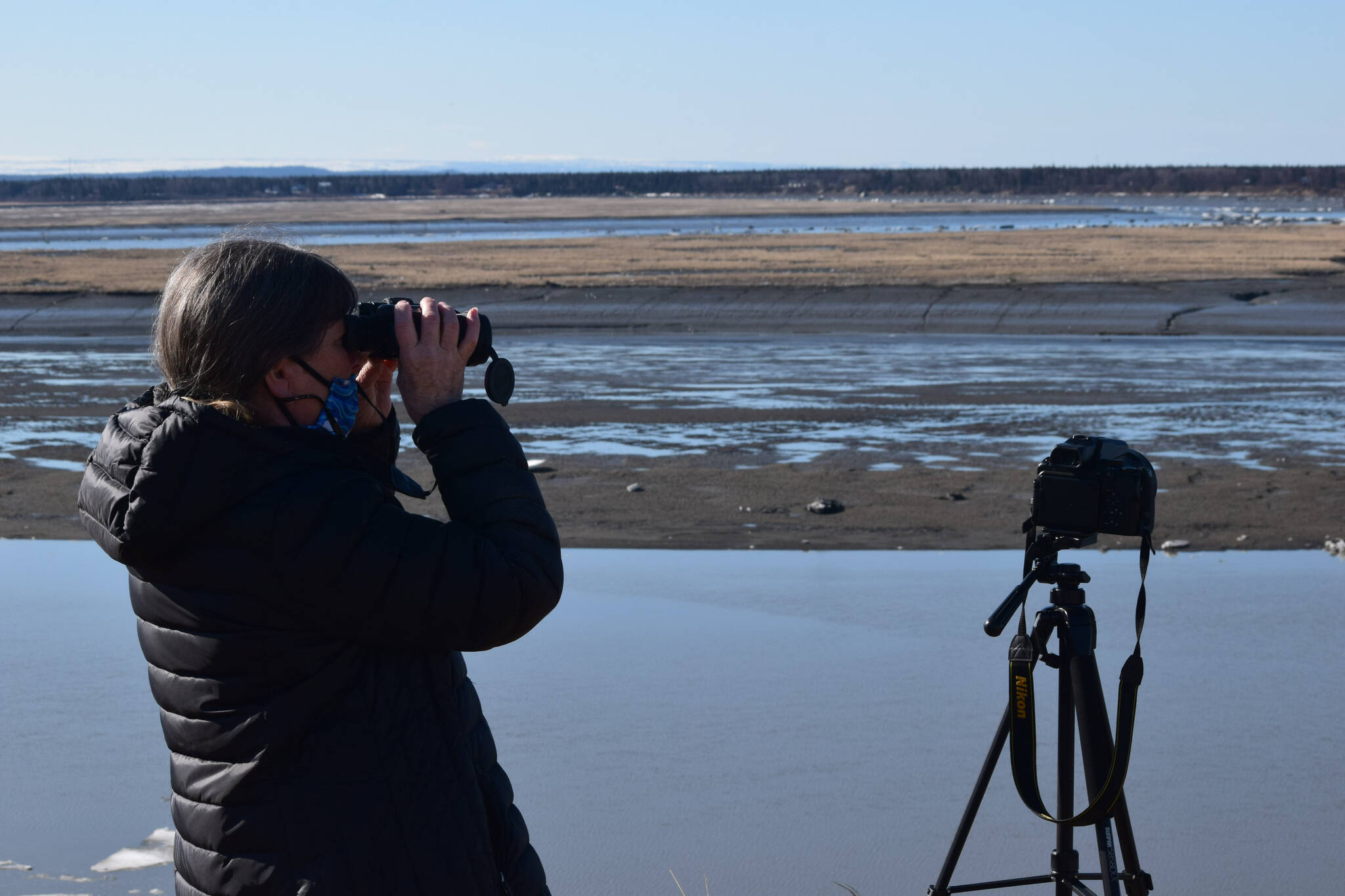The “vital” vocal communications of the endangered population of Cook Inlet belugas may be masked by ship noise in its core critical habitat. That’s according to a study by the Journal of the Acoustical Society of America, published in November and featured by the National Oceanic and Atmospheric Administration on Monday.
According to NOAA Fisheries, belugas are “highly social and vocal marine mammals” who “use acoustics to find prey, navigate their environment, avoid predators, and maintain group cohesion.” The study, which NOAA says was a collaborative effort between their own Alaska Fisheries Science Center, the University of Washington and the State Department of Fish and Game, sought to “document the complex vocal repertoire” of the population.
The completed study, “Communication in Cook Inlet beluga whales: Describing the vocal repertoire and masking of calls by commercial ship noise” was published on Nov. 30 and authored by Arial Brewer, Manuel Castellote, Amy Van Cise, Tom Gage and Andrew Berdahl.
Brewer says in the NOAA feature that Cook Inlet sees traffic and noise from commercial shipping, the international airport, military operations and oil and gas exploration.
”All of that human-caused noise means the belugas may not hear critical communications from each other, such as predator alarm calls or a mother calling to her calf,” Brewer says in the feature.
She goes on to say that Cook Inlet belugas may be “particularly vulnerable” to noise because of how turbid — or cloudy — Cook Inlet is. The waters of Cook Inlet, made turbid by glacial runoff, are “like chocolate milk,” Brewer says.
The study was conducted by analyzing recordings produced by passive acoustic recorders mounted in Cook Inlet as part of the Cook Inlet Beluga Acoustics Program. The NOAA feature says the scientists analyzed recordings from multiple seasons generated at the Susitna River and at Trading Bay.
The group listened for beluga vocalizations and classified them into three groups. They used a process called rarefaction to “assess the richness and completeness of a beluga vocal repertoire,” which NOAA says has never been done for a beluga population before.
The constructed vocal repertoire can be used, Brewer says in the feature, do expand understanding of habitat size and behavior in the population.
Of the 41 calls documented in the study, 18 have not been documented in any other population of beluga whales, which speaks to the “long-term geographic and genetic isolation” of the population, Brewer says.
The calls defined in the study were also tested for masking — when the ability to detect and recognize a sound is degraded by the presence of another sound. The sound frequency of the Cook Inlet beluga calls were tested against the sound of commercial ship noise through “the most important area of their habitat.”
All seven of “the most commonly used call types” were partially masked by commercial ships within 17 kilometers of the study — and they were completely masked when the ships were at their closest.
Taking the average number of ships that use the Port of Alaska each year, NOAA says that an average of eight to 10 ships pass each week. Each of those passages “could mask” beluga communication for an average of nearly two hours.
“This means beluga communication in the Susitna delta could be subject to masking for approximately 29-37 hours a week,” the feature reads.
To read the full feature by NOAA Fisheries, visit fisheries.noaa.gov and search for “vocal repertoire of Cook Inlet Beluga”
Reach reporter Jake Dye at jacob.dye@peninsulaclarion.com.

